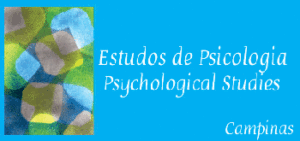Michele Carmona Aching and Tania Mara Marques Granato, Pontifícia Universidade Católica of Campinas, Higher Education Program of Post-Graduate Studies in Psychology, Campinas, SP, Brazil
 Researchers from the Pontifícia Universidade Católica of Campinas have faced the challenge of developing a model for psychological care in touch with the needs of expecting mothers and young African refugee mothers when they started to arrive in Brazil in virtue of the wave of violence initiated by the extremist group called Boko Haran. The paper “Role of a support network for refugee mothers” published by Estudos de Psicologia (Campinas) Vol. 35, No. 2 presents the main results.
Researchers from the Pontifícia Universidade Católica of Campinas have faced the challenge of developing a model for psychological care in touch with the needs of expecting mothers and young African refugee mothers when they started to arrive in Brazil in virtue of the wave of violence initiated by the extremist group called Boko Haran. The paper “Role of a support network for refugee mothers” published by Estudos de Psicologia (Campinas) Vol. 35, No. 2 presents the main results.
The study was developed in a shelter for expecting mothers and young mothers in the city of São Paulo, where the lack of preparedness of the institutional staff, the prejudice of the Brazilian mothers sheltered therein has deepened the already precarious situation of the refugees who have been suffering with solitude, distance from their family members and their community, the lack of a common tongue for communication and the cultural differences.
The African mothers have had to deal with great resistance from the Brazilian mothers to understand and, therefore, to accept certain maternal practices which bound them to their communities of origin and validated the experience of motherhood (ROGOFF, 2005). In this context where multiple necessities overlapped, the researchers saw themselves asked to help in obtaining the documents in our country, to search in the network of support objects that would facilitate the experience of mothering (WINNICOTT, 2000), to understand and to protect the rituals of child care, to mediate interviews with lawyers and to bring the institutional staff closer to a posture of hospitality and warmth towards the foreigner.
The helplessness of refugee mothers in face of the violence suffered in their country of origin, the reason behind the forced migration, allied to the unknown environment, different and sometimes hostile from the sheltering country had a pivotal role in developing a transcultural Winnicottian clinic (MORO, 2015). Such a proposal demands a decentering from the psychotherapist, that is, a distancing of his/her own values, beliefs and practices in favor of bringing the refugee’s cultural universe closer and to rescue her as a subject of rights who needs to develop her own way of mothering.
References
MORO, M. R. Psicoterapia transcultural da migração. Psicol. USP [online]. 2015, vol.26, n.2, pp.186-192. [viewed 24 July 2018]. ISSN 0103-6564. DOI: 10.1590/0103-6564D20140017. Available from: http://ref.scielo.org/qmbdpq
ROGOFF, B. A natureza cultural do desenvolvimento humano. São Paulo: Artmed, 2005.
WINNICOTT, D. W. Preocupação materna primária. In: WINNICOTT, D. W. Textos selecionados: da pediatria à psicanálise. Rio de Janeiro: Imago, 2000. p. 491-498.
To read the article, acess
ACHING, M. C. and GRANATO, T. M. M. Role of a support network for refugee mothers. Estud. psicol. (Campinas) [online]. 2018, vol.35, n.2, pp.137-147. [viewed 24 July 2018]. ISSN 0103-166X. DOI: 10.1590/1982-02752018000200003. Available from: http://ref.scielo.org/8nvhs8
External link
Psychological Studies (Campinas) – ESTPSI: www.scielo.br/estpsi
Como citar este post [ISO 690/2010]:












Recent Comments